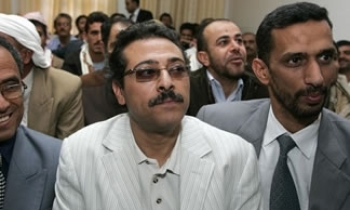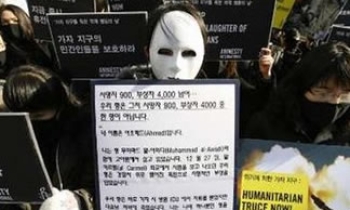Hungary’s ruling party Fidesz on Monday announced a decision to delay a vote on a number of media bills which critics have warned constitute a throwback to state control in the former Soviet satellite state.
Hungary’s parliament was due to vote on Monday on the proposed creation of a powerful Media Council – strongly criticised by opposition politicians and journalists – which would operate within a new authority created through the fusion of the national radio and television authority (ORTT) and the telecom authority (NHH), and whose head would be appointed by the country’s prime minister. The four other members would be appointed by a parliamentary committee, through a two-thirds majority vote in the absence of consensus, thus ensuring ruling party control of the body.
According to Hungarian national news agency MTI the two Fidesz party MPs who announced the delay said it was prompted by inconsistencies in the bills’ order of presentation. They also said more time was needed to hear out suggestions by media professionals before a final vote.
Fidesz deputy Andras Cser-Palkovics said that the section of the media law package dealing with regulation of public media would be put to a final vote by 19 July, MTI reported. A portion of the package dealing with Internet regulation and print media content had already been postponed to the end of the summer.
Media professionals and opposition MPs had suggested that Hungary’s ruling party – which presides over a two-thirds majority in Parliament – was trying to rush the bill through, without respecting the usual consultative procedure.
International Press Institute (IPI) Press Freedom Manager Anthony Mills said: “While we welcome the postponement, albeit it only for a few weeks, of some of the most worrisome elements of the proposed media package, we reiterate our call for the full withdrawal of the package in its current form. Any media reform initiative should preserve the independence of Hungary’s media and should be implemented only after consultation with all of the key stakeholders.”
Earlier, the European Federation of Journalists (EFJ), the regional body of the International Federation of Journalists (IFJ), had protested the new media bill which it warned would "turn the clock back" for press freedom in the country.
"The bill before the Hungarian Parliament is a restrictive measure that limits freedom of opinion and thereby freedom of speech," Aidan White, EFJ General Secretary had said. "It does not meet European standards of diversity and plurality and turns the clock back to a time when Hungary lived under communism and the shadow of state control of media."
EFJ said the bill brings under state regulation the content of most printed and audiovisual media, even a part of the Internet. Because it lacks clearly defined norms and is superficial in character the fear is that the new rules will be arbitrarily applied and open the door to high-handed interference.









